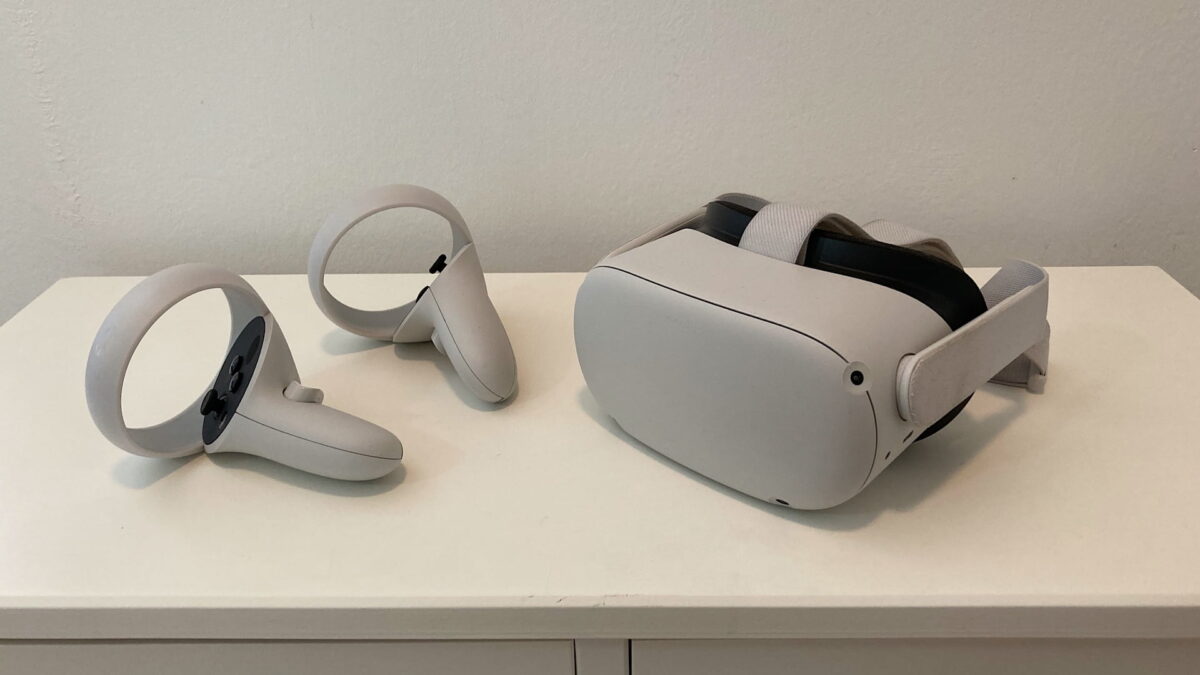Quest 2: Why Meta isn't talking about sales numbers

When it comes to the success of Meta Quest 2, people often speculate about the sales figures. However, they are not the decisive factor for success. That could be the reason why Meta doesn't talk about them - and also keeps quiet about a much more interesting number.
Meta has probably sold around ten million devices by now. That is relatively certain. Anyone familiar with Meta's VR history knows that this is an important number.
In 2018, Mark Zuckerberg defined ten million users on a single VR platform as a preliminary goal. Once that mark was reached, studios could afford to develop high-quality VR content, which in turn would drive more users into the ecosystem to buy it. The result, Zuckerberg said on stage at Oculus Connect 5, would be explosive growth.
Last summer, Meta's chief technology officer, Andrew Bosworth, drew an initial positive conclusion that this figure could be reached more quickly than Meta had expected. However, Bosworth did not disclose the exact time frame.
If Meta has really sold ten million units, why isn't the company vocal about it?
VR success: It's all about usage
Metaverse blogger Wagner James Au recently asked himself this question. One of his readers gave him a possible answer: the number of active users could be significantly lower than the hardware sales figures.
A poor retention metric would negatively impact the external view of Meta's high Metaverse spend, as it goes against Meta's investment thesis that VR is particularly fascinating over the long-term thanks to its immersion. It would seem as if people had tested VR out of curiosity - but did not find it interesting beyond an initial enthusiasm.
So there might be some truth to this thesis. If we listen to Zuckerberg's 2019 keynote again, it becomes clear that the CEO was not referring to sales figures, but to the people who use and buy VR content. You can watch the relevant passage below.
Two years later, Zuckerberg said in an interview with The Verge, that "from an ecosystem perspective, we believed that if we get to 10 million units active, then that’s kind of a critical magic number." Zuckerberg added that he was optimistic about reaching that goal "over the next few years."
Meta, therefore, measures the success of VR less in terms of hardware sales figures than in terms of returning users and their usage time - these are common metrics in the media business. High return rates and long usage times are the basis for growing revenues.
Samsung's failed Gear VR smartphone VR glasses are a vivid example of hardware that spread much better and faster than the competition, but had no economical basis due to low usage.
More software, more comfortable hardware
So even if Meta has sold ten million devices: The company is probably a long way from ten million active VR users - which is why it always cites other metrics like app store milestones and developer revenue when it wants to talk about success.
Could it be that many Quest devices are barely used? At least less frequently than other gaming platforms like smartphones, consoles and PCs?
That many Quest headsets sit unused in the closet is something former Oculus Chief Technology Officer John Carmack said late last year. Hardware analyst and leaker Brad Lynch says he often hears from his sources that customer retention is still a weak point in the VR industry. So retention still seems to be a challenge for virtual reality, even with the more accessible standalone headsets.
One possible reason: VR is demanding. Players have to set up their play area, possibly clear the room, and perhaps be physically active instead of sitting down to play. The 360-degree immersion and natural interaction in VR with one's own body are impressive and the medium's big plus. At the same time, VR is also more cognitively taxing than traditional media.
Great content could keep players coming back regularly, Carmack said. But it's also possible, he said, that first the hardware will have to get better, lighter and offer more features to add value over other forms of entertainment, or that VR headsets will have to boot up and be ready to go faster.
Note: Links to online stores in articles can be so-called affiliate links. If you buy through this link, MIXED receives a commission from the provider. For you the price does not change.